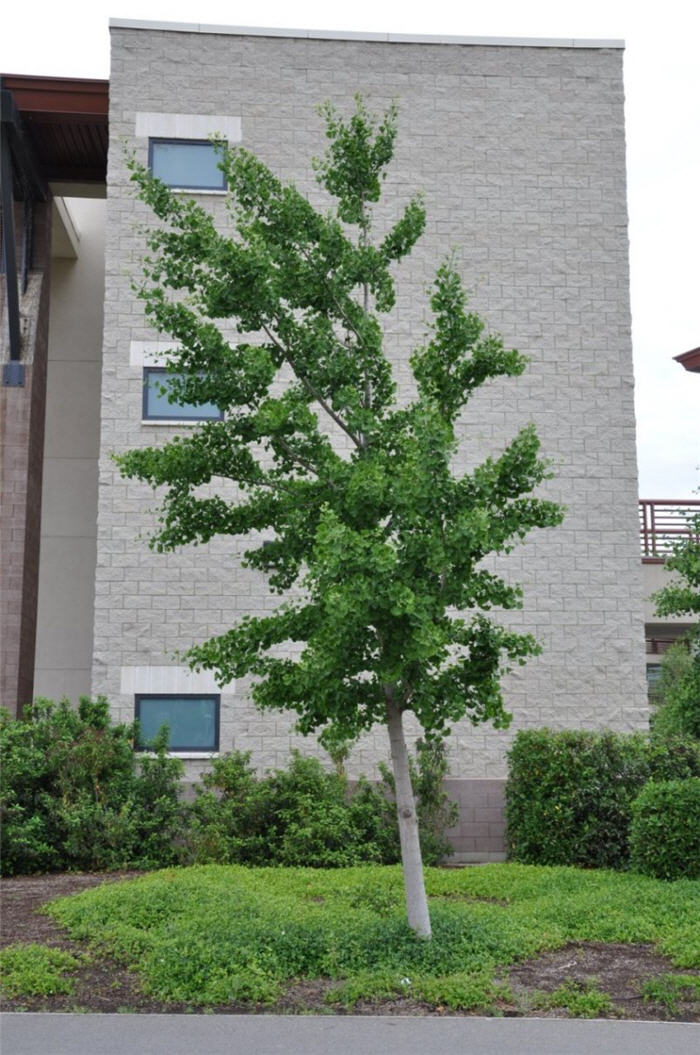| Botanical Name: Ginkgo biloba | |
| Common Name: Ginkgo; Maidenhair tree |

-
Anatomy
-
Culture
-
Design
Plant Type
Tree
Height Range
40-60', 60-100'
Flower Color
n/a
Flower Season
n/a
Leaf Color
Light Green
Bark Color
Brown, Grey
Fruit Color
n/a
Fruit Season
n/a
Sun
Full
Water
Low, Medium
Growth Rate
Slow
Soil Type
Sandy, Clay, Loam, Rocky, Unparticular
Soil Condition
Average, Rich, Poor, Well-drained, Dry
Soil pH
Acid, Neutral, Basic
Adverse Factors
n/a
Design Styles
Formal, Japanese, Mediterranean, Ranch, Spanish, Woodland
Accenting Features
Fall Color, Silhouette, Specimen, Unusual Foliage
Seasonal Interest
Spring, Summer, Fall
Location Uses
Background, Shrub Border, Patio, Park, Street Tree, Walls / Fences
Special Uses
Screen, Mass Planting, Shade Tree
Attracts Wildlife
n/a
Information by: Stephanie Duer
Photographer: Greg Applegate, Connon N.
Photographer: Greg Applegate, Connon N.
-
Description
-
Notes
Ginkgo is a tough, durable, slow-growing deciduous tree that reaches 40 to 70 feet tall and 20 to 40 feet wide. It has a strong central leader and horizontal branching that gives it a strong, architectural look, even in winter. Its distinct fan-shaped leaves are a rich green, and upon turning yellow in the fall, have the interesting habit of dropping at nearly the same time. Many cultivars are available, including columnar forms. Most trees sold are male, as the female has an odiferous fruit.
Ginkgo grows best in full sun and well drained soils. It displays a tolerance for a wide range of soil types and pH, though will not grow in wet soils. Drought, heat, and salt tolerant. No pest or disease problems. It is slow growing, so patience and a long vision are necessary, but they are worthy of the wait.